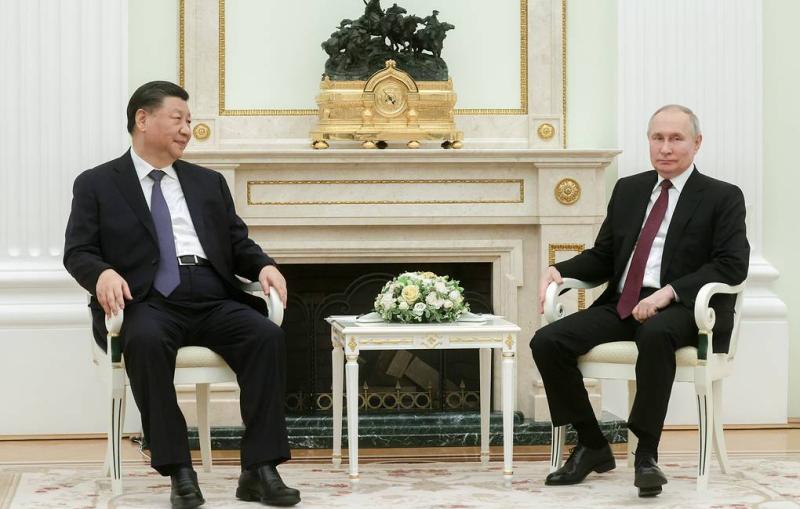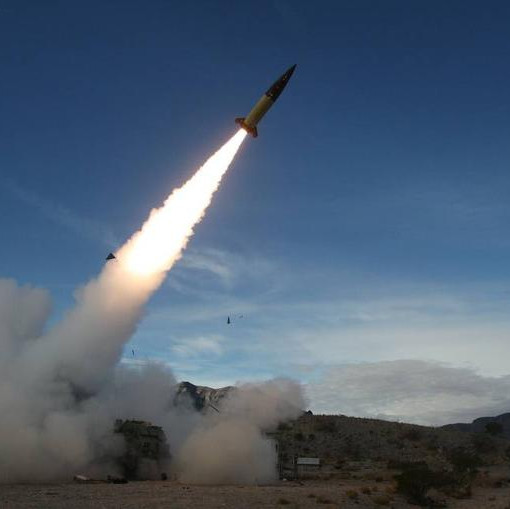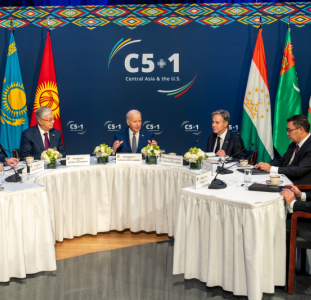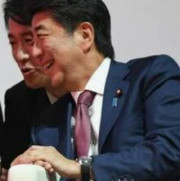
© Sergei Karpukhin/TASS
Top stories from the Russian press on Tuesday, March 21st, prepared by TASS
Vladimir Putin and Xi Jinping held a one-on-one meeting at the Kremlin ahead of expanded negotiations, EU countries agreed to provide one mln munitions to Ukraine, and Japan seeks to drag India into the US' sphere of influence. These stories topped Tuesday’s newspaper headlines across Russia.
Vedomosti: Chinese leader believes Russian people will back Putin in next election
The first round of talks between Presidents Vladimir Putin of Russia and Xi Jinping of China lasted about 4.5 hours on Monday. The main part of the Russian-Chinese negotiations will take place on March 21, Vedomosti notes.
In the open part of the meeting, the Russian leader congratulated the Chinese president on his re-election and praised China’s effectiveness in developing the economy and strengthening the government. Xi Jinping, in turn, stressed that Beijing "pays great attention to promoting China-Russia relations." Meanwhile, the most unexpected of his remarks concerned Russia’s 2024 presidential election. Xi Jinping expressed confidence that the Russian people will continue to support Putin. The incumbent president has not yet announced plans to run in the election and his spokesman Dmitry Peskov later explained that Xi’s remark did not mean that he had any additional information about the possibility of Putin running.
On the one hand, the Chinese president’s statement was directed to President Putin but on the other, it was addressed more so to the international community, Institute for the Development of Parliamentarism Executive Director Sergey Malakhov said. "Western countries are waging an aggressive public political campaign to put pressure on Russia, seeking to weaken our country’s position on the international stage," the expert noted. "Clearly, Russian President Vladimir Putin has been chosen as the main target of this campaign and the presidential election race is supposed to be the main point of impact," he explained. "By expressing its support and confidence in Putin’s election win, China has effectively put to rest the issues of Russia’s international isolation and the international recognition of the results of the vote, thus greatly weakening the efficacy of the pressure campaign against Russia a year before the presidential election, " Malakhov added.
"Xi Jinping is making it clear that Putin has been and will remain a suitable partner for him," political scientist Alexey Makarkin pointed out. Besides, until recently, there was a two-limit term for the general secretary of the Chinese Communist Party and the Chinese president, but it was lifted, the expert noted. "There may be a fourth term in office for him [Xi Jinping] after the third one. That is why Xi made the statement for his domestic audience as well. Western benchmarks don’t matter to these countries," the analyst said.
Vedomosti: EU countries agree to supply Ukraine with a million shells
The EU issued a statement on March 20 saying that 17 member states and Norway had reached an agreement to provide one mln 155 mm munitions to Ukraine within a year, of which ammunition worth 1.04 bln euros would be purchased from existing stocks and an additional one bln euros would be spent on joint procurement. The money will come from the European Peace Facility (EPF).
According to Mikhail Barabanov, an expert at the Center for Analysis of Strategies and Technologies, defense companies in the Czech Republic and Slovakia are highly likely to get their share of the one bln euros to produce new ammunition, but most of the money will be spent on promoting production in Western Europe and, perhaps, Rheinmetall facilities in Australia and South Africa. Bulgaria and Romania, who have been providing Soviet standard ammunition to Ukraine, don’t have certified factories to produce 155 mm munitions and won’t be able to establish them promptly, the expert noted.
Earlier it was reported that Bulgaria alone had exported $1 bln worth of military products in 2022, but this figure must refer to all of the country’s defense exports so the level of ammunition supplies to Ukraine is much lower. Barabanov estimates that one bln euros is enough to manufacture 250,000 155 mm munitions.
Military expert and editor of the Military Russia media outlet Dmitry Kornev says that the European industry is capable of producing about one mln munitions a year. However, the Europeans are most likely to reduce investment in the industry to a bare minimum and instead look for places to purchase munitions because buying them is easier than making them, Kornev noted. The expert believes that given the current intensity of hostilities, Ukraine needs at least 100,000 to 150,000 munitions a month, which means over 10,000 munitions a day, and even more than that during offensive operations because both artillery preparation and troop support require ammunition. "If military activities in Ukraine last beyond 2023, the demand for NATO-standard ammunition will persist. That is why it won’t be possible to get away with just buying ammunition so it’s safer for the West to invest in the ammunition industry," Kornev said.
Nezavisimaya Gazeta: Tokyo seeks to drag New Delhi into US sphere of influence
Japanese Prime Minister Fumio Kishida has met with his Indian counterpart Narendra Modi in New Delhi. Since India wishes to represent the interests of developing countries on the international stage, the Japanese guest invited Modi to take part in a meeting of the Japan-chaired G7 group in 2023. Kishida is also expected to put forward a plan to counter China and Russia in the Asia-Pacific region during the talks, which will last until March 22, Nezavisimaya Gazeta writes.
Japanese officials make no secret that Tokyo’s plan, which hasn’t been made public yet, provides for greater infusions of capital into the economies of India and its neighboring countries with low per capita incomes. Besides, defense cooperation has been playing an increasingly important role in Japan-India relations, and this issue will also be touched upon.
However, Head of the Center for Japanese Studies at the Russian Academy of Sciences’ Institute of China and Modern Asia Valery Kistanov does not expect Kishida to "say anything fundamentally new." "Initially, the strategy was developed with the goal of containing China. Tokyo believes that China is the main threat to Japan’s security in the region. This concerns the South China and East China Seas, where China and Japan have territorial disputes. Such an approach is laid out in Japan's updated national security strategy adopted in December 2022. It was already common knowledge even before Kishida’s visit to New Delhi that he would invite Modi to the G7 summit, which will be hosted by his home town of Hiroshima in May," the expert noted.
"Another objective that Kishida would like to accomplish while in New Delhi is to push India to condemn Russia. So far, India has been reluctant to do so, maintaining a neutral position on Ukraine and pursuing a policy of evenhandedness. Tokyo is also not happy that India, which is part of the Quad alliance along with Japan, the US and Australia, keeps resisting its partners’ demands to take an anti-Russian stance. In this regard, Tokyo can take advantage of the unstable situation on the Line of Actual Control that serves as the border between India and China," Kistanov emphasized.
Izvestia: Western financial crisis may be nearing its peak
The swift rescue of Switzerland’s Credit Suisse bank is an indication of serious problems in the European banking system, said experts interviewed by Izvestia. The bank was sold to leading Swiss lender UBS for a symbolic price of three bln Swiss francs ($3.2 bln). The deal may mark the beginning of more mergers and acquisitions around the globe.
UBS’ acquisition of its rival Credit Suisse is a historic moment for Switzerland and its banking system, one of the strongest in the world, BCS World of Investment expert Valery Yemelyanov noted. The myth that Swiss regulation is somehow above reproach and their work practices are absolutely flawless has finally been debunked, the expert said, adding that there were no more safe havens.
The rapid operation to save a systemically important player such as Credit Suisse points to serious problems in the European banking system, Sovcombank Leading Analyst Mikhail Vasilyev said. Switzerland’s Central Bank approved the merger only because there were no other good options, the analyst said.
It’s possible that some other credit institutions in Europe are in a position similar to that of Credit Suisse, Director of corporate and banking business at Tsifra Broker Alexander Tsyganov pointed out. The problems that other market participants are facing are likely to be solved through mergers, too, Portfolio Manager at Sistema Capital Dmitry Terpelov noted.
According to Yemelyanov, what is happening now is in fact a banking crisis. It’s unclear if this is the peak but it is unlikely to end now. A lot of hidden problems have piled up during the years of cheap money and now, they are emerging in various parts of the world.
Experts expect that the tumult in the West will have an indirect impact on Russia’s market by way of pressure on commodity prices.
Media: Bitcoin set to rise amid US crisis
Bitcoin prices have risen to their highest level since June 2022 and Ethereum is nearing its highest mark since September amid turbulence in the US and European financial systems. Cryptocurrencies are traditionally regarded as safe havens along with gold and US debt securities. Since regulators have launched major injections of capital into the financial system, market participants expect prices to grow further, Kommersant writes.
According to CEO and founder of Mineplex Digital Banking Alexander Mamasidikov, the problems that banks are facing have sparked a capital flight to other assets. "In such a situation, some investors have chosen to use their capital to buy bitcoins as an alternative savings instrument," the expert noted.
Equity Strategist at SberCIB Investment Research Dmitry Makarov, in turn, told Rossiyskaya Gazeta that Bitcoin prices had been falling since March as the US Federal Reserve had been expected to continue to raise its interest rate. "However, market participants expect the Federal Reserve to soften its monetary policy following the failure of some US banks. The US regulator may even reduce the rate by 100 basis points during the second half of the year, which will support risky assets, namely cryptomarket tools. A distrust of the banking system, along with a change in the Federal Reserve’s monetary policy, is supporting the crypto-asset market," the economist noted.
The worse the traditional economy’s state, the better it is for Bitcoin, Finam analyst Leonid Delitsyn stressed. "If the banking crisis continues to worsen and investor concern keeps growing, Bitcoin may outdo all the previous 'gold fever' epidemics. However, the thing to keep in mind is that traditional finances will stabilize with time and Bitcoin’s price will not remain at such a high level for very long," the expert said.









